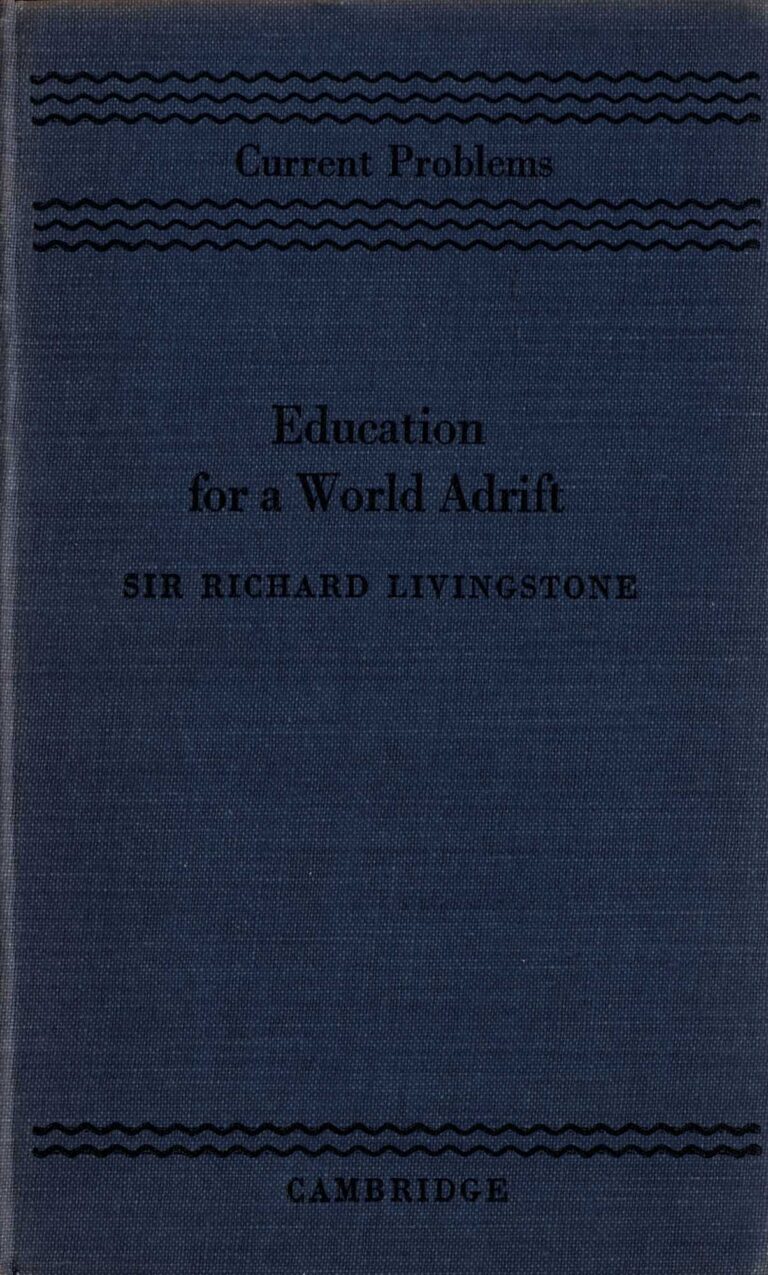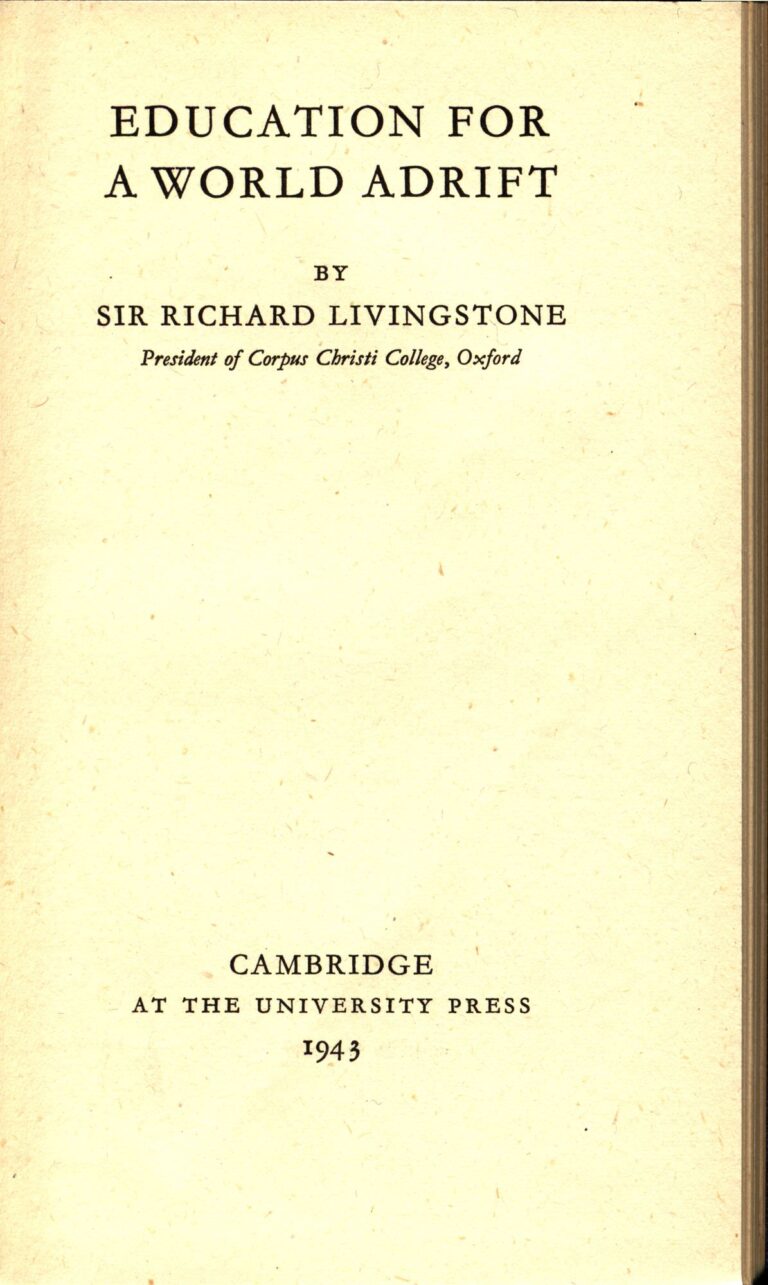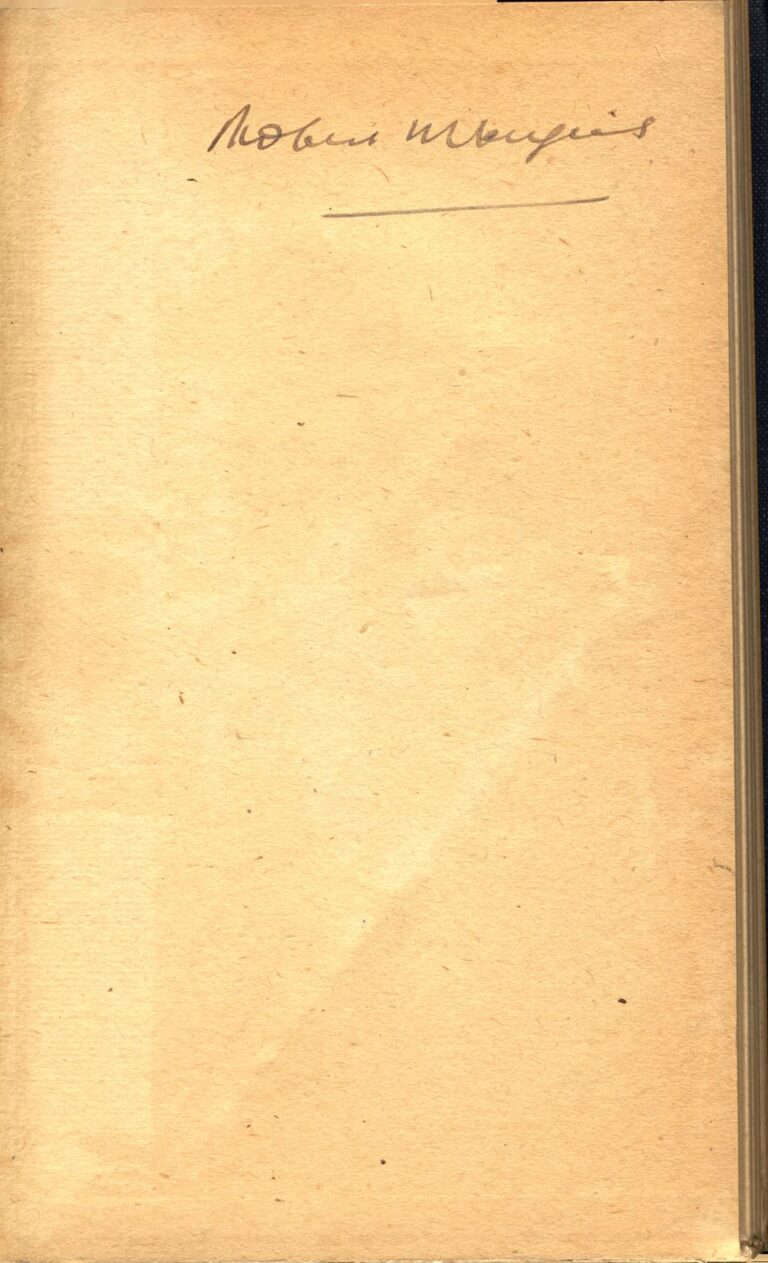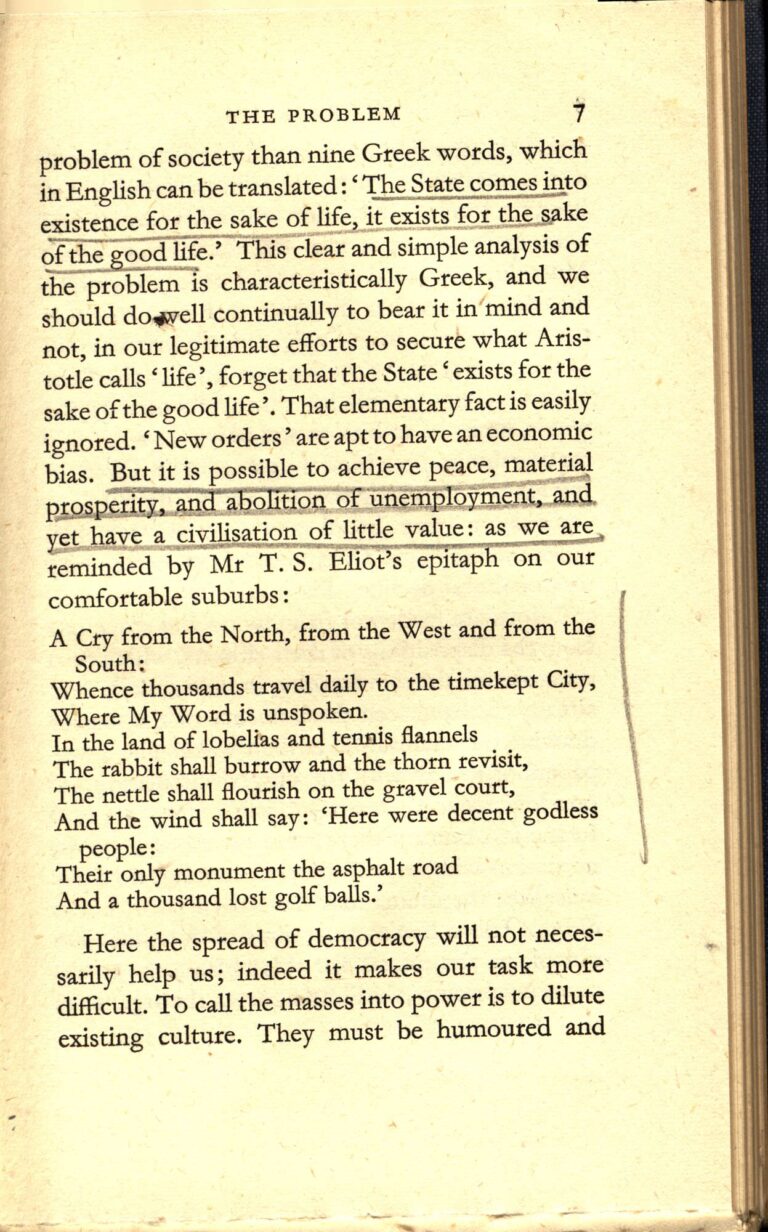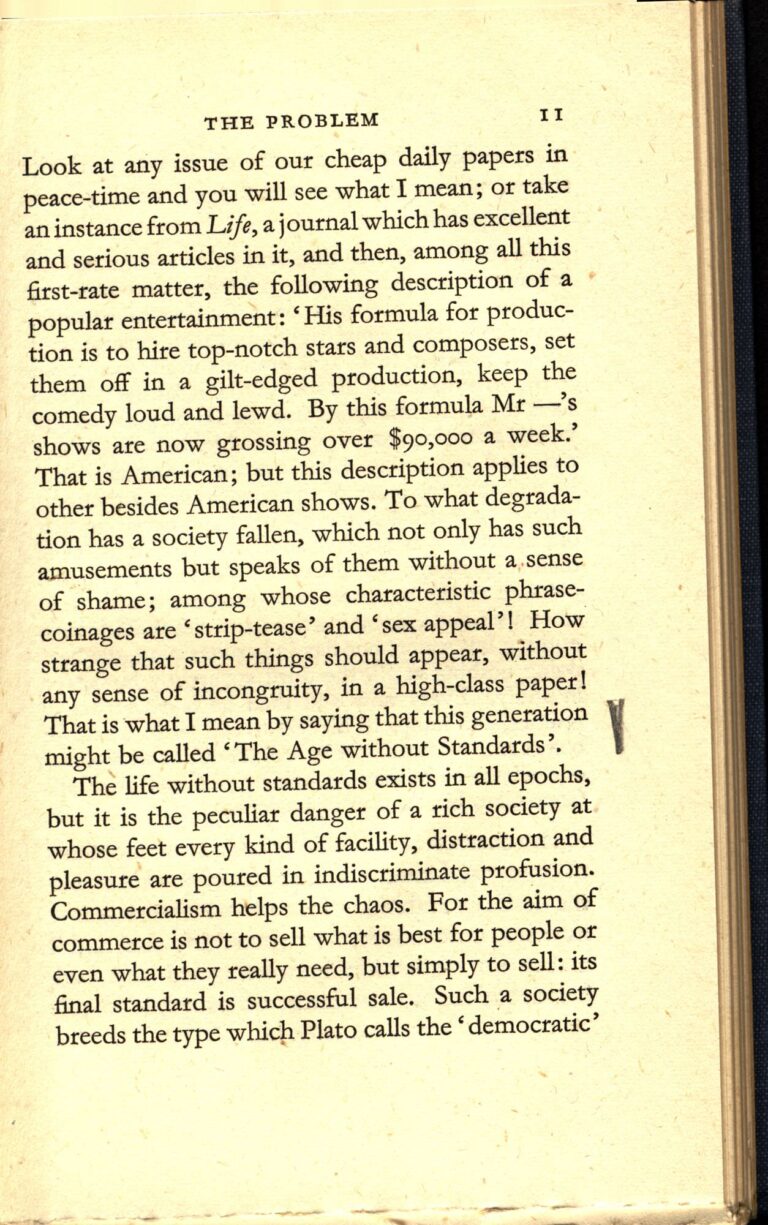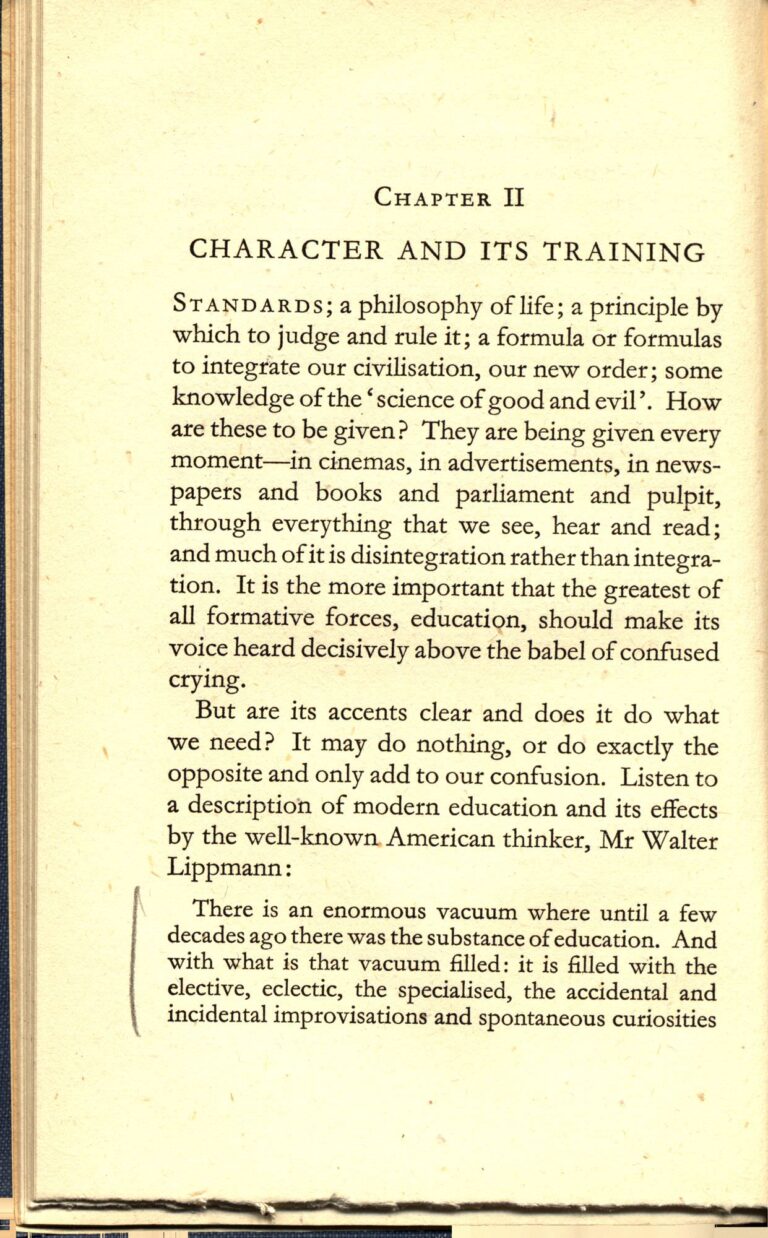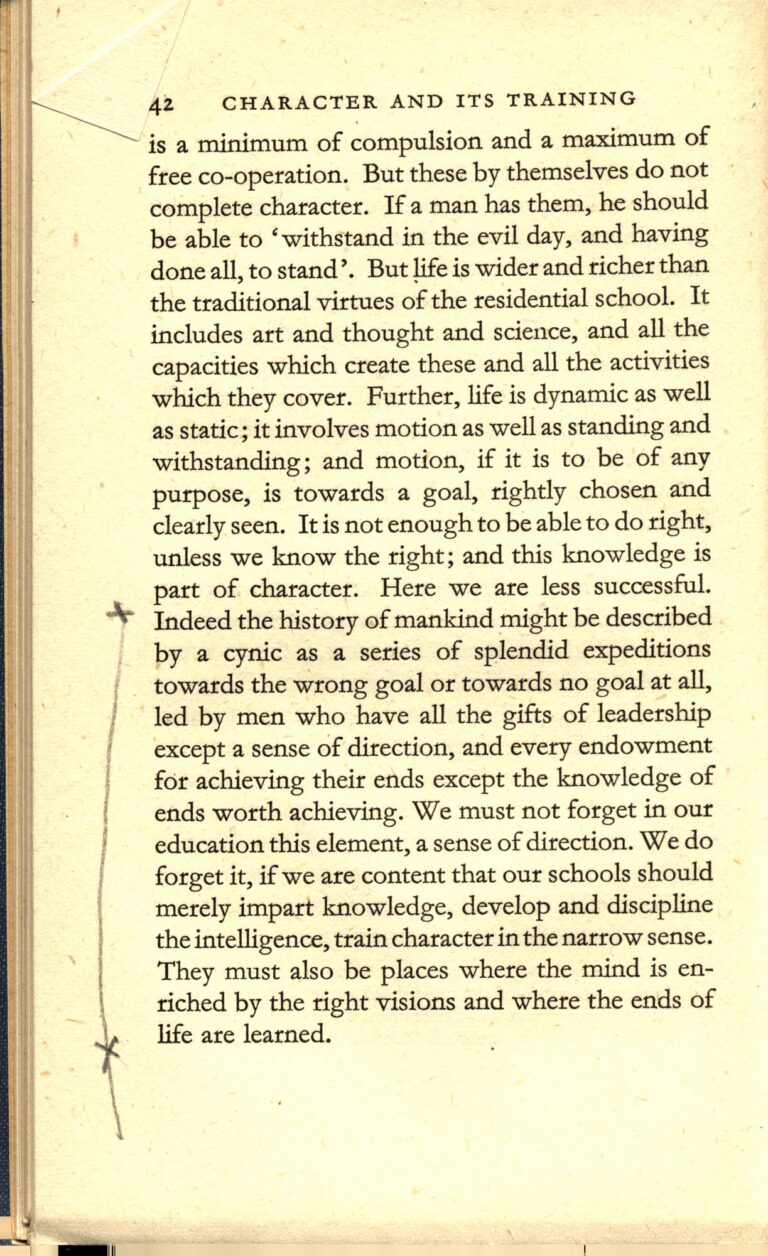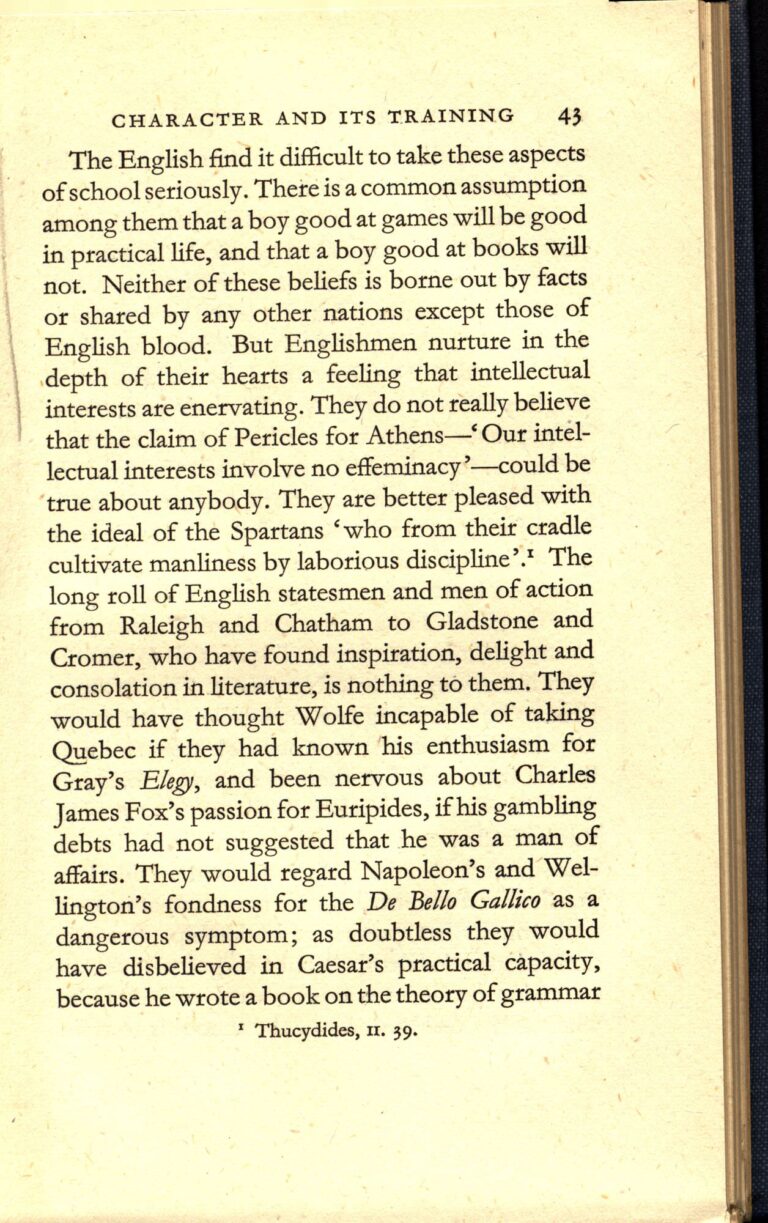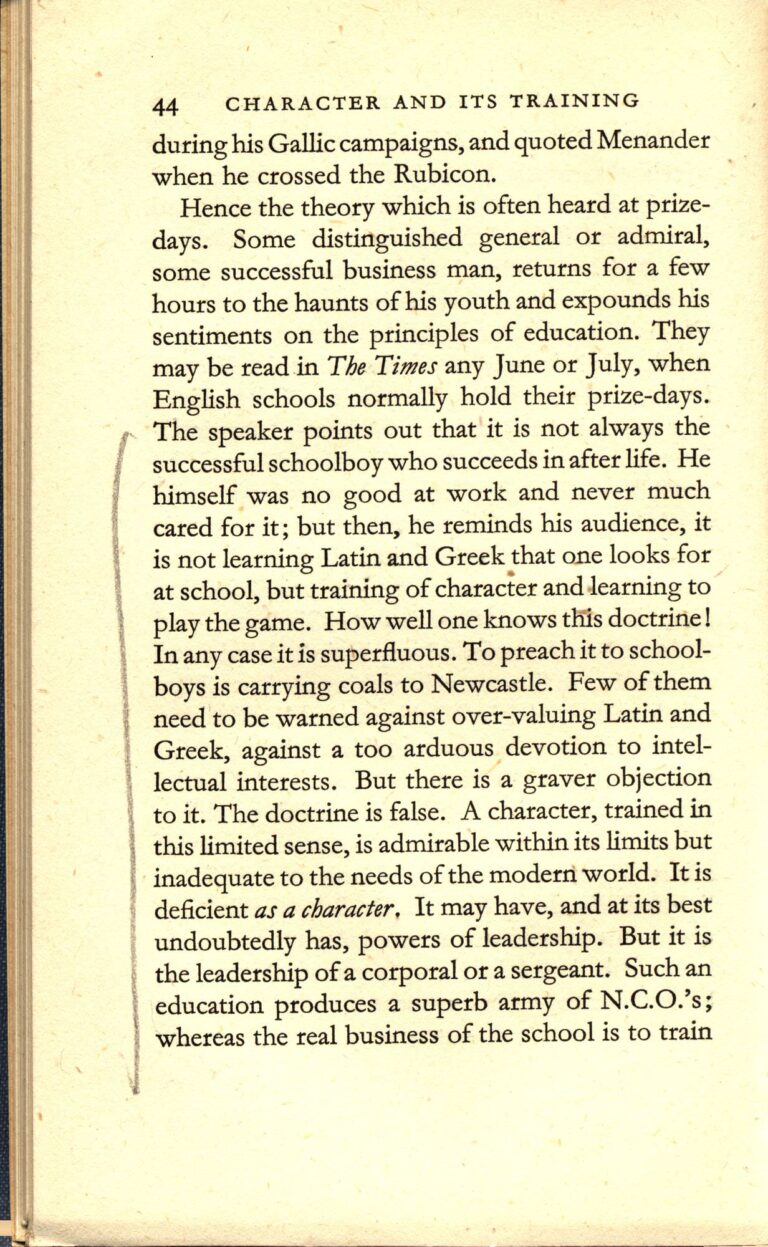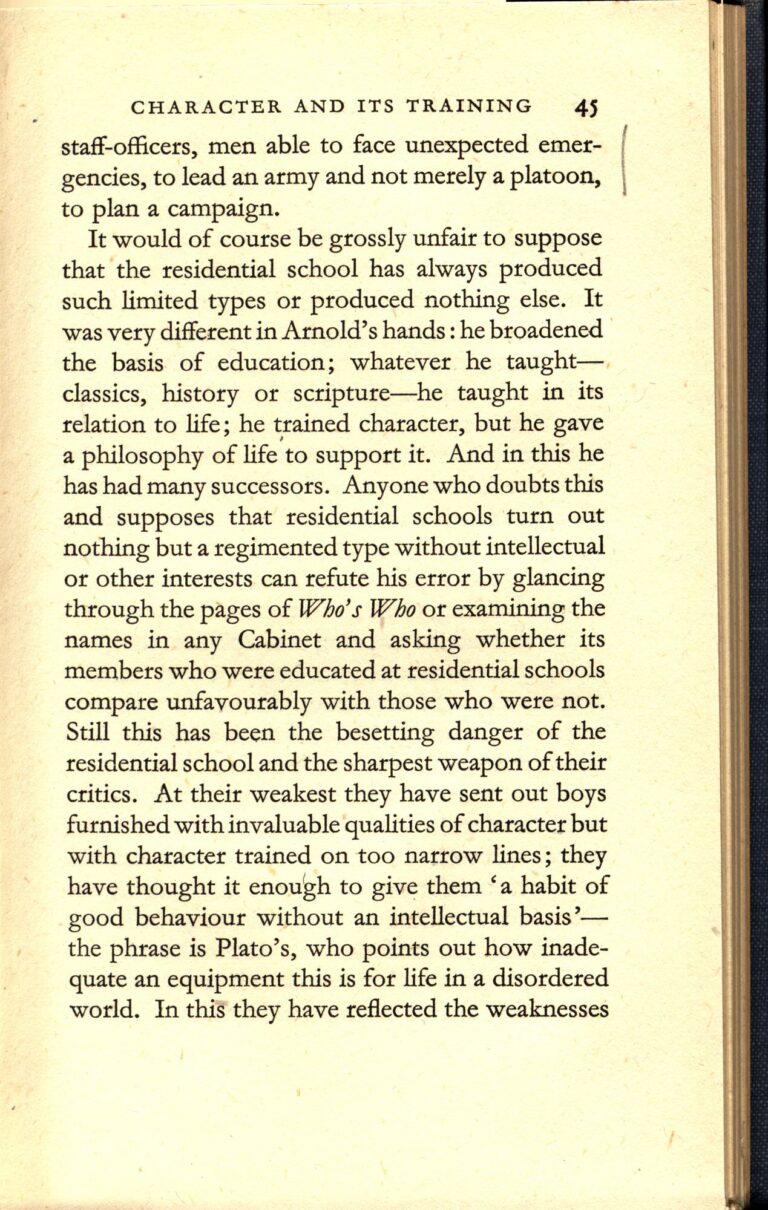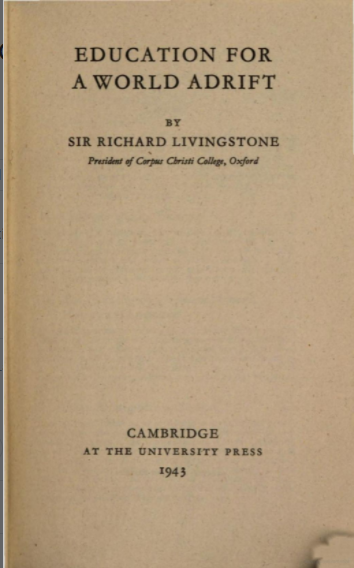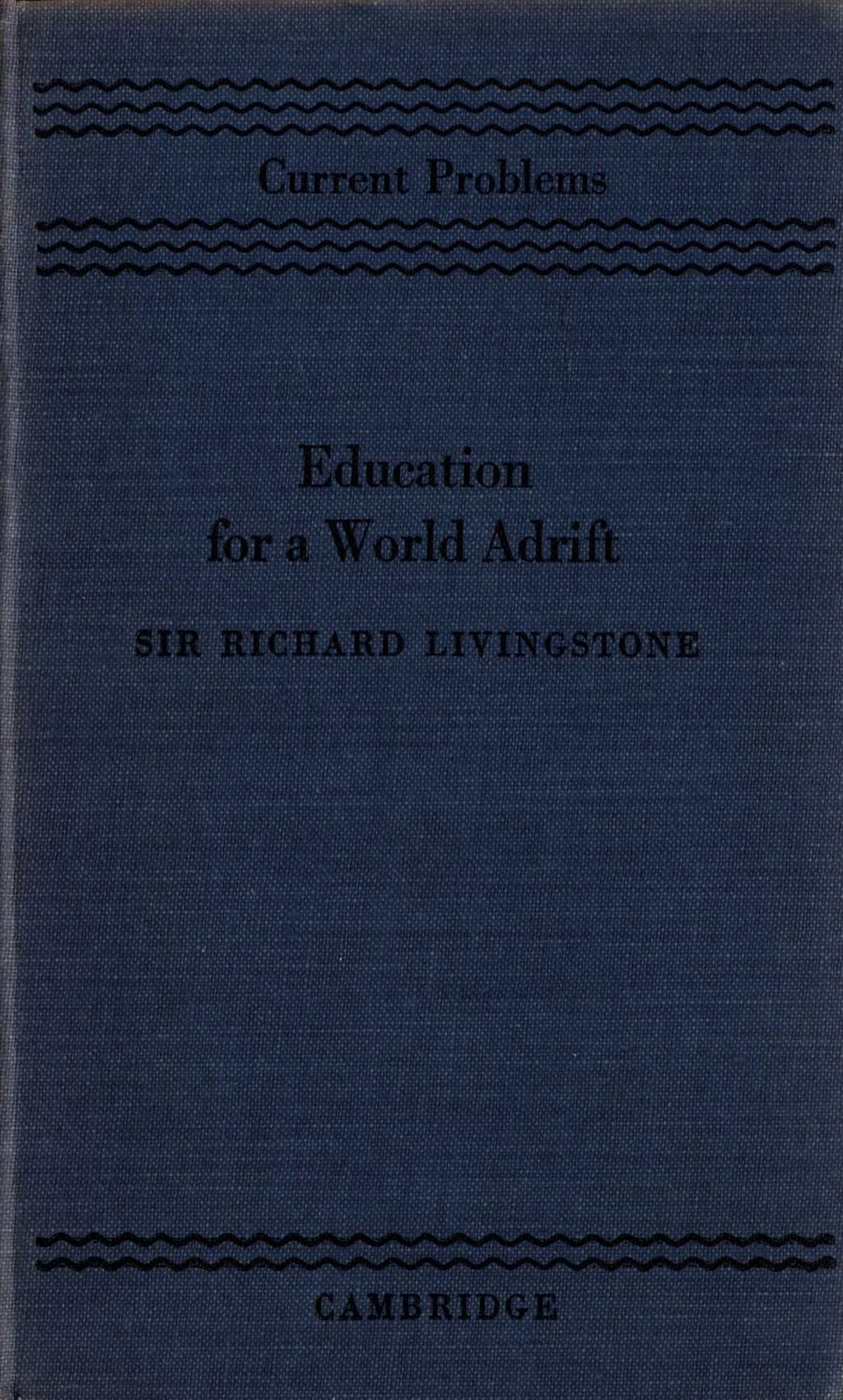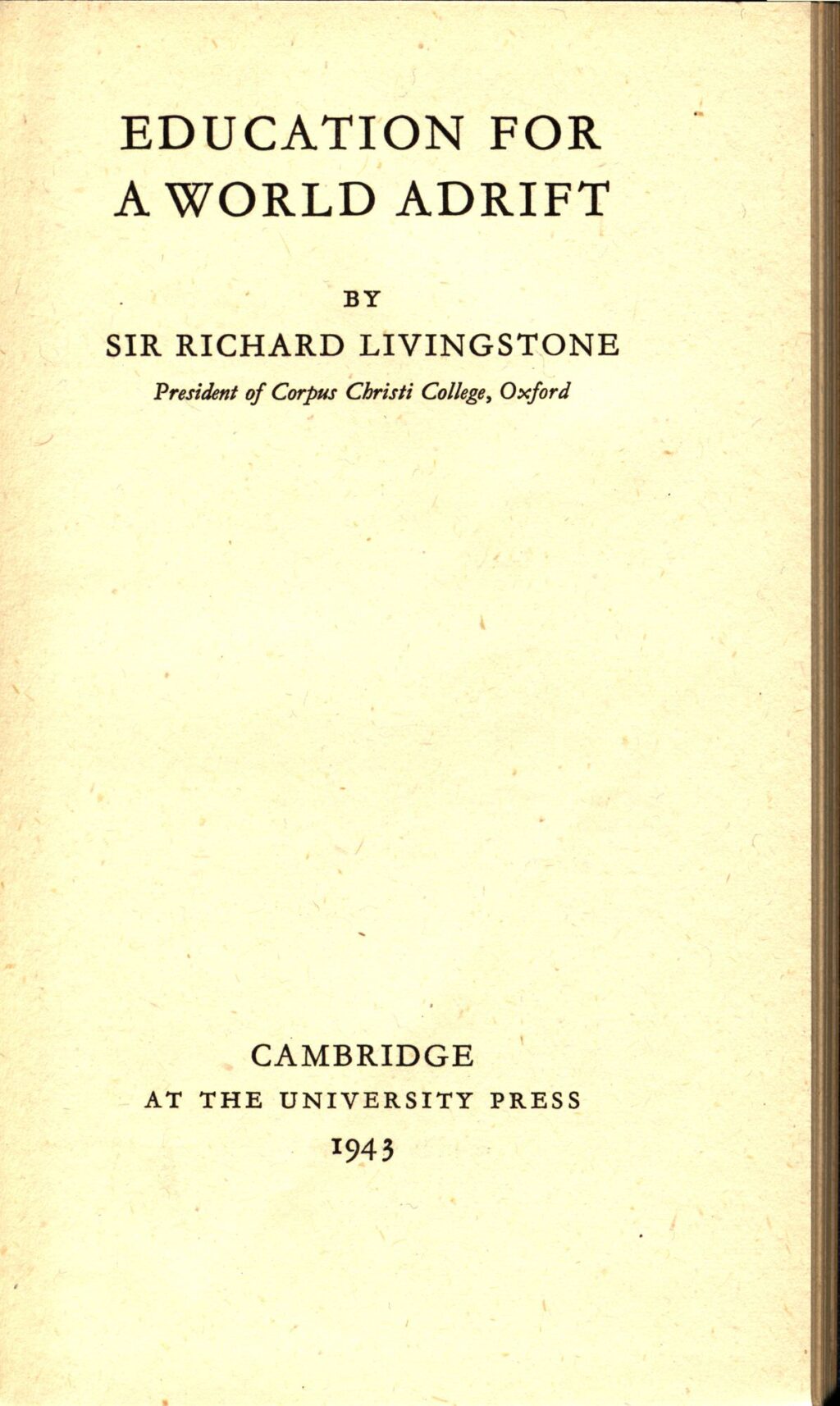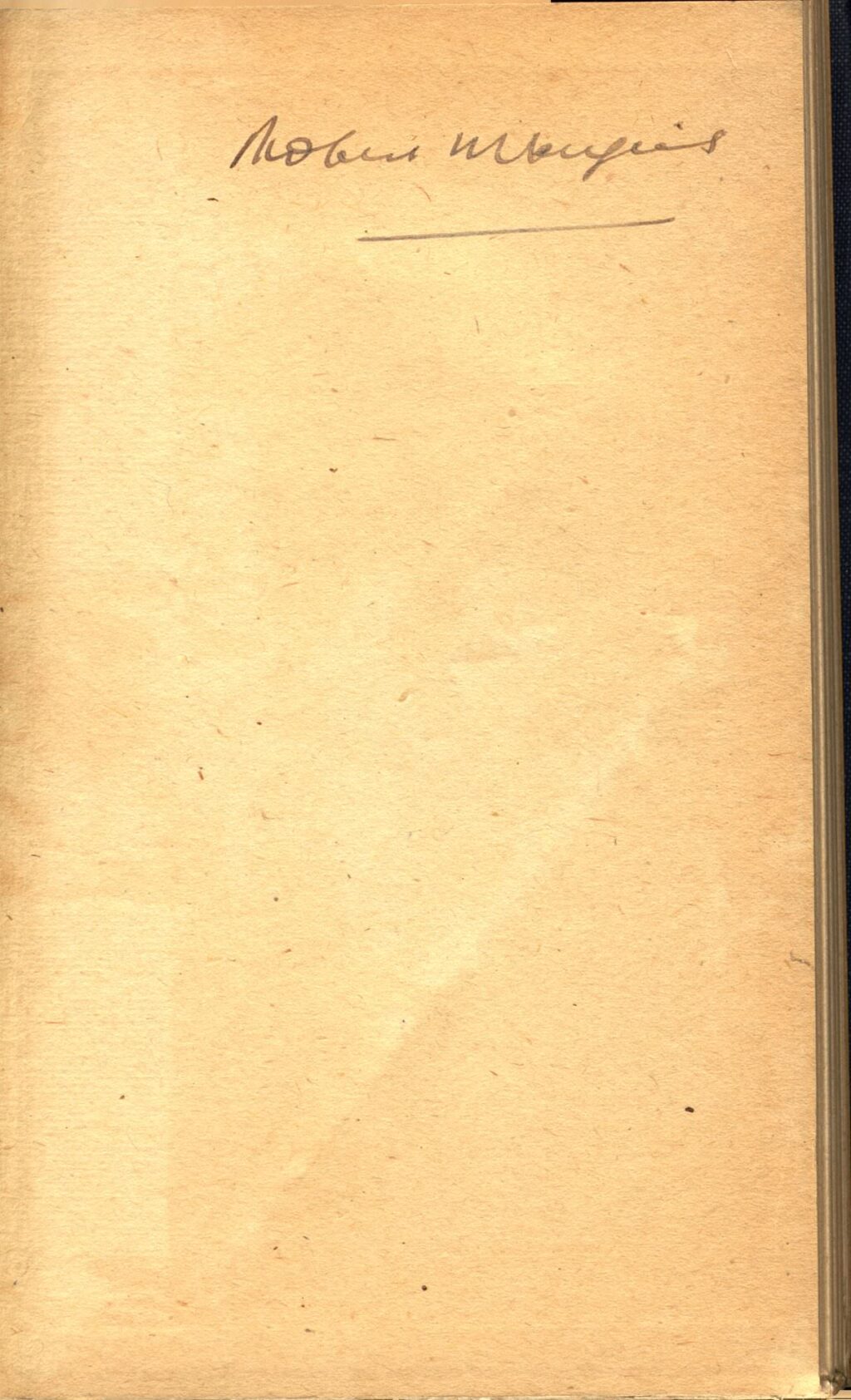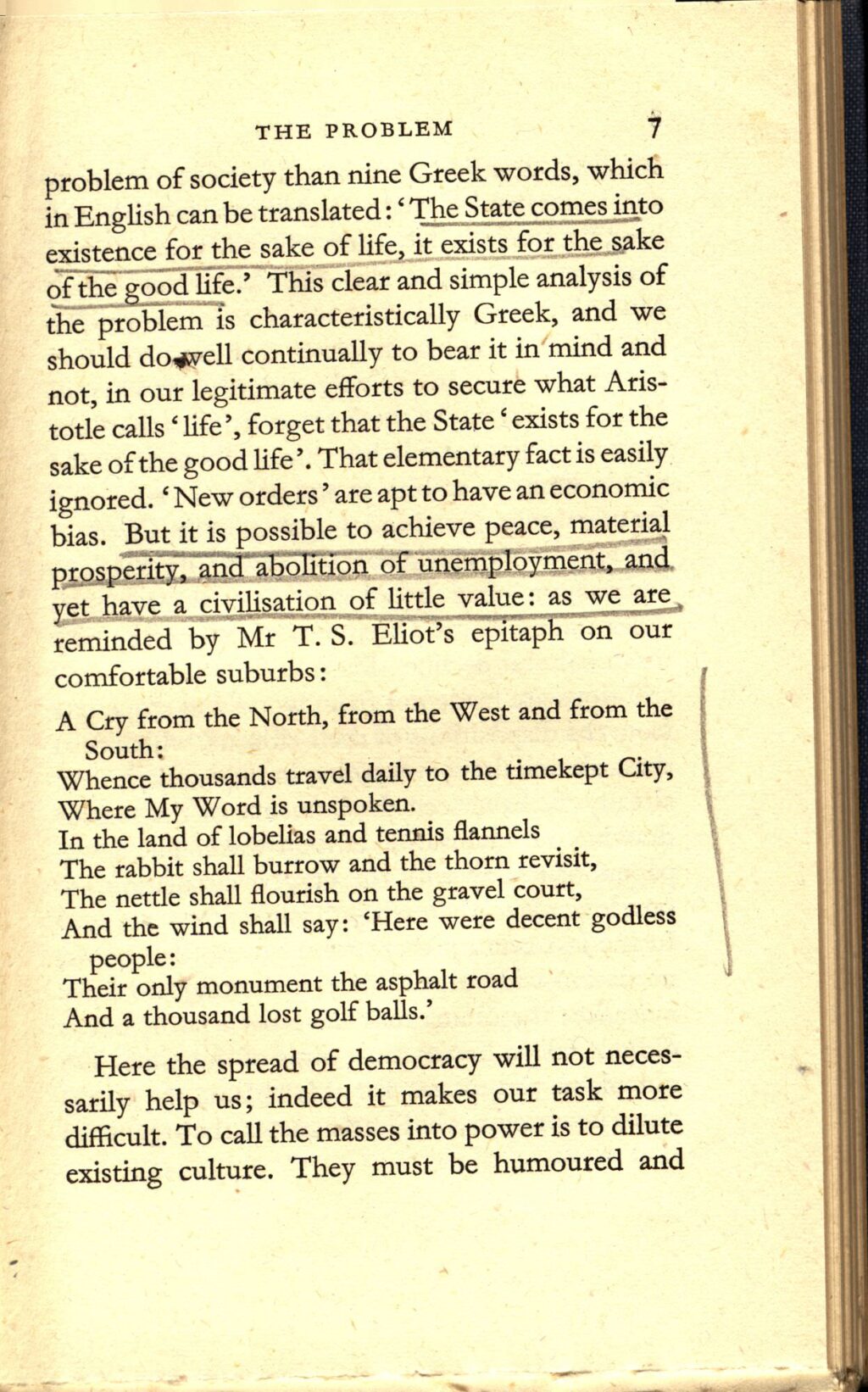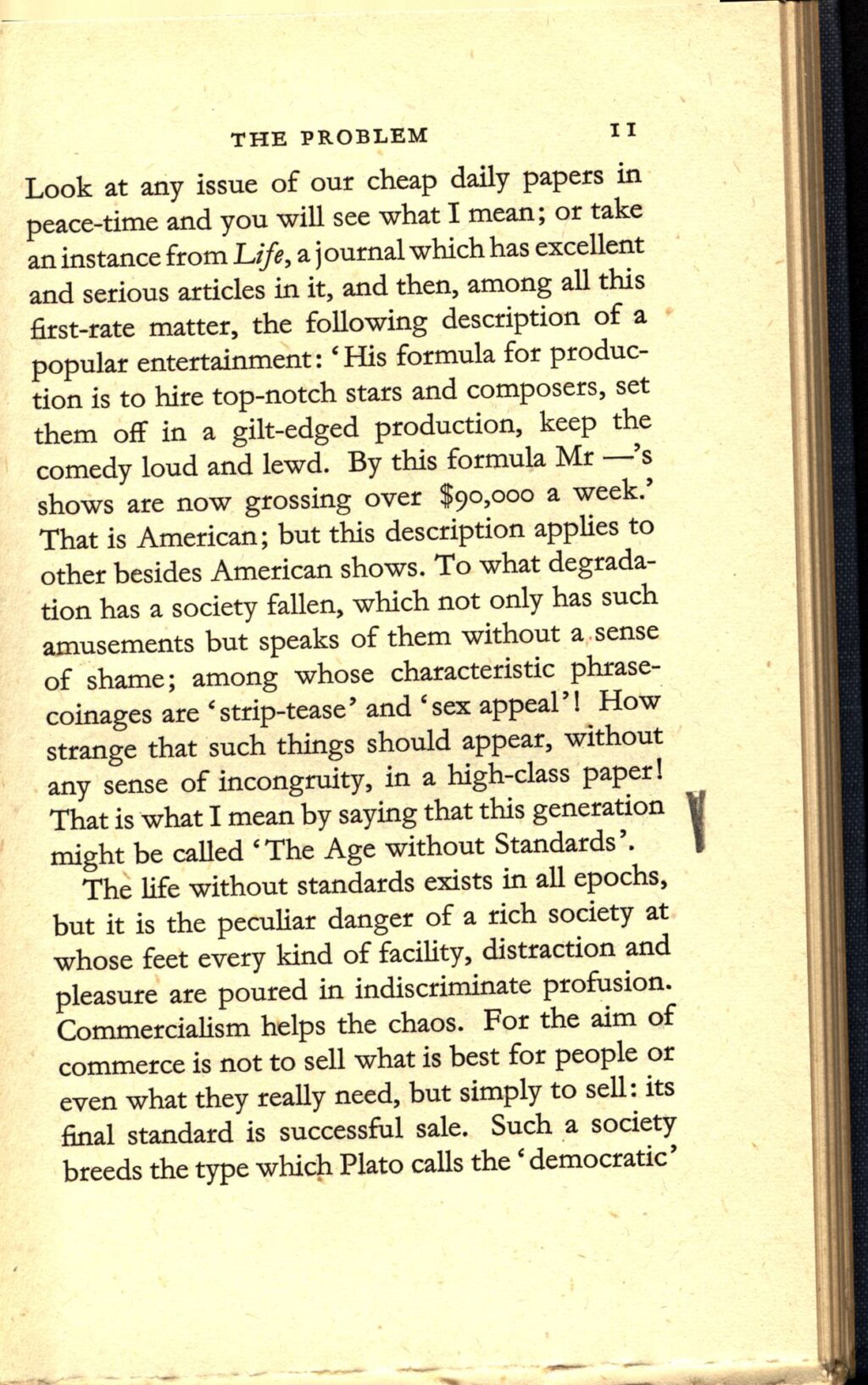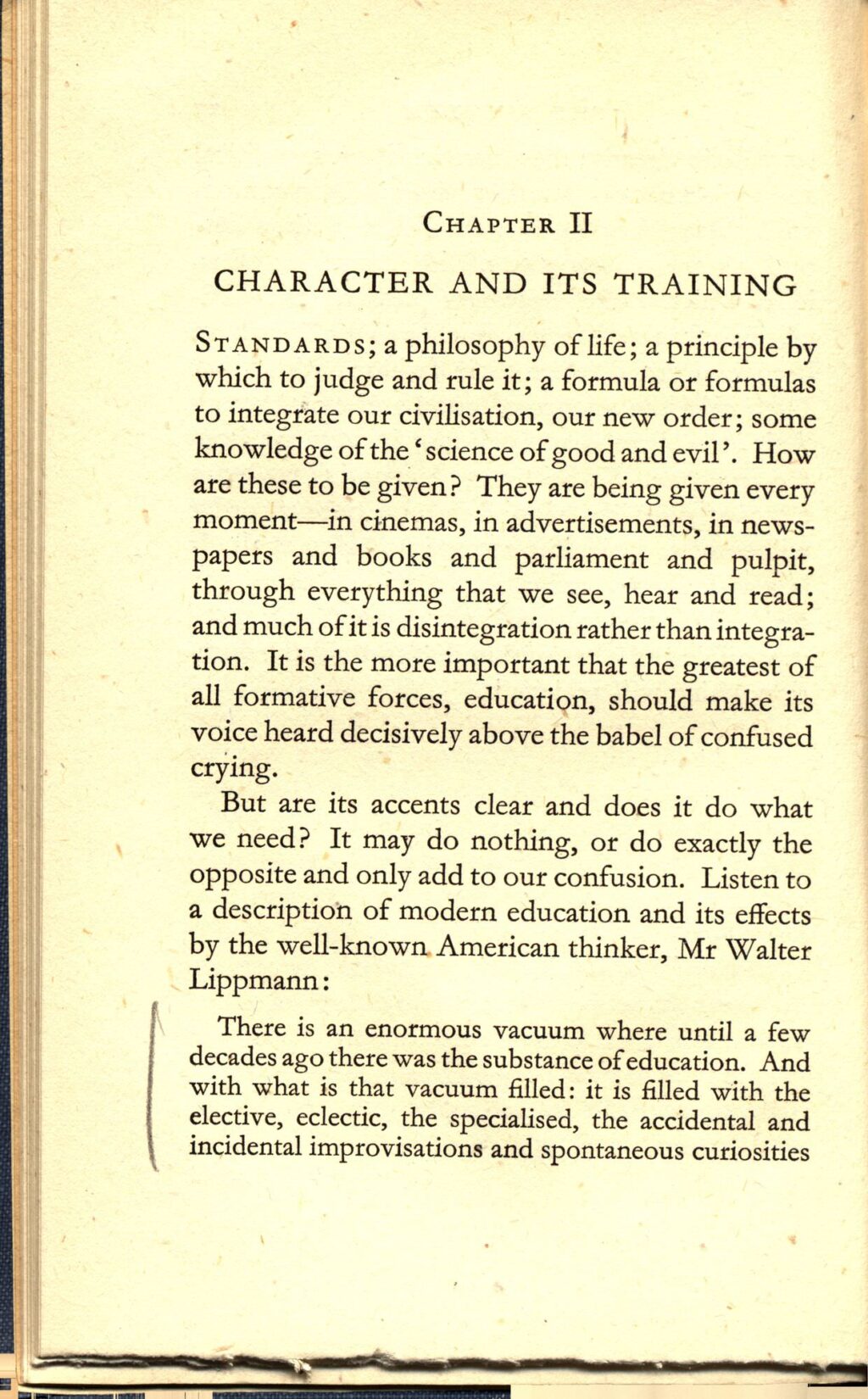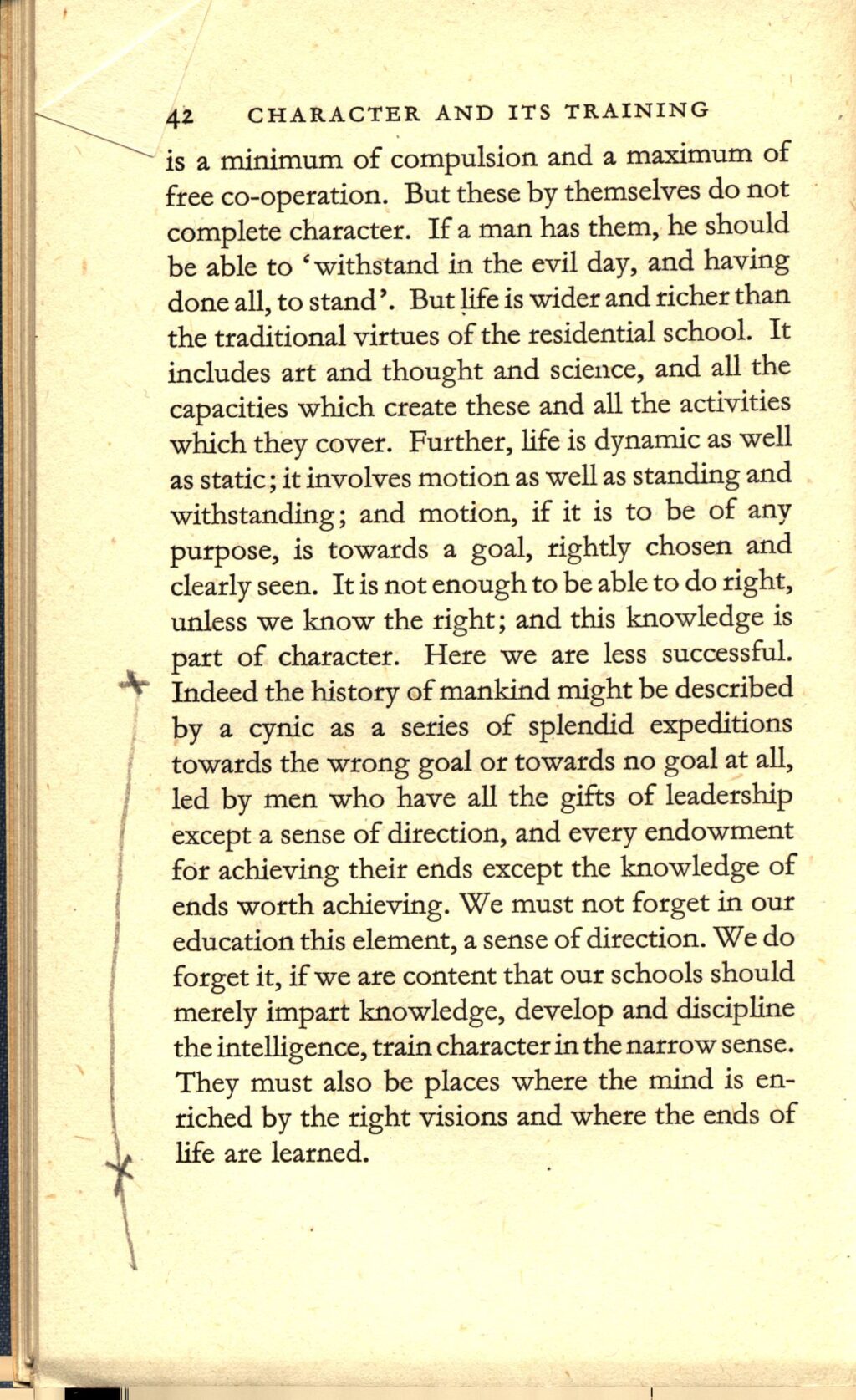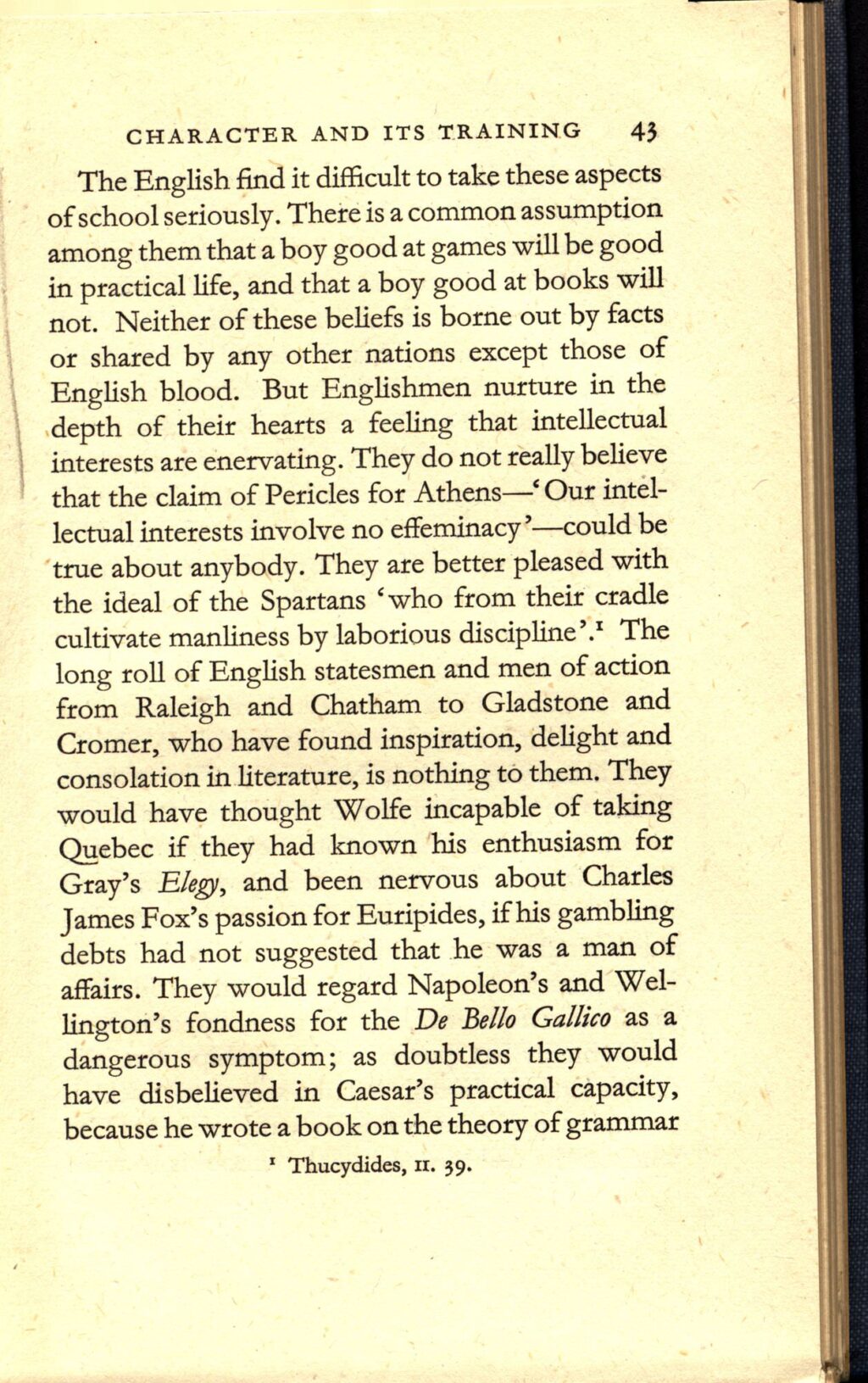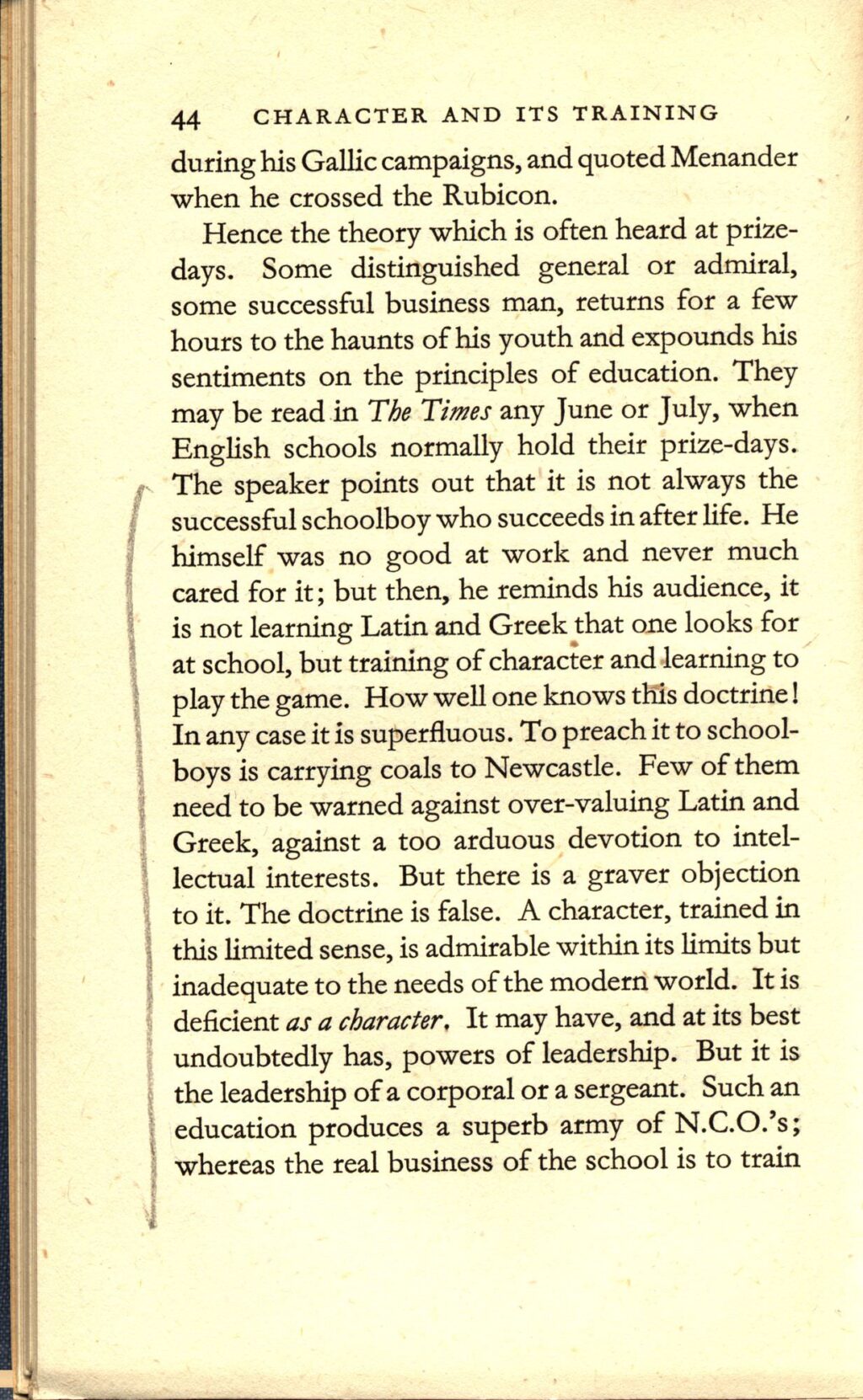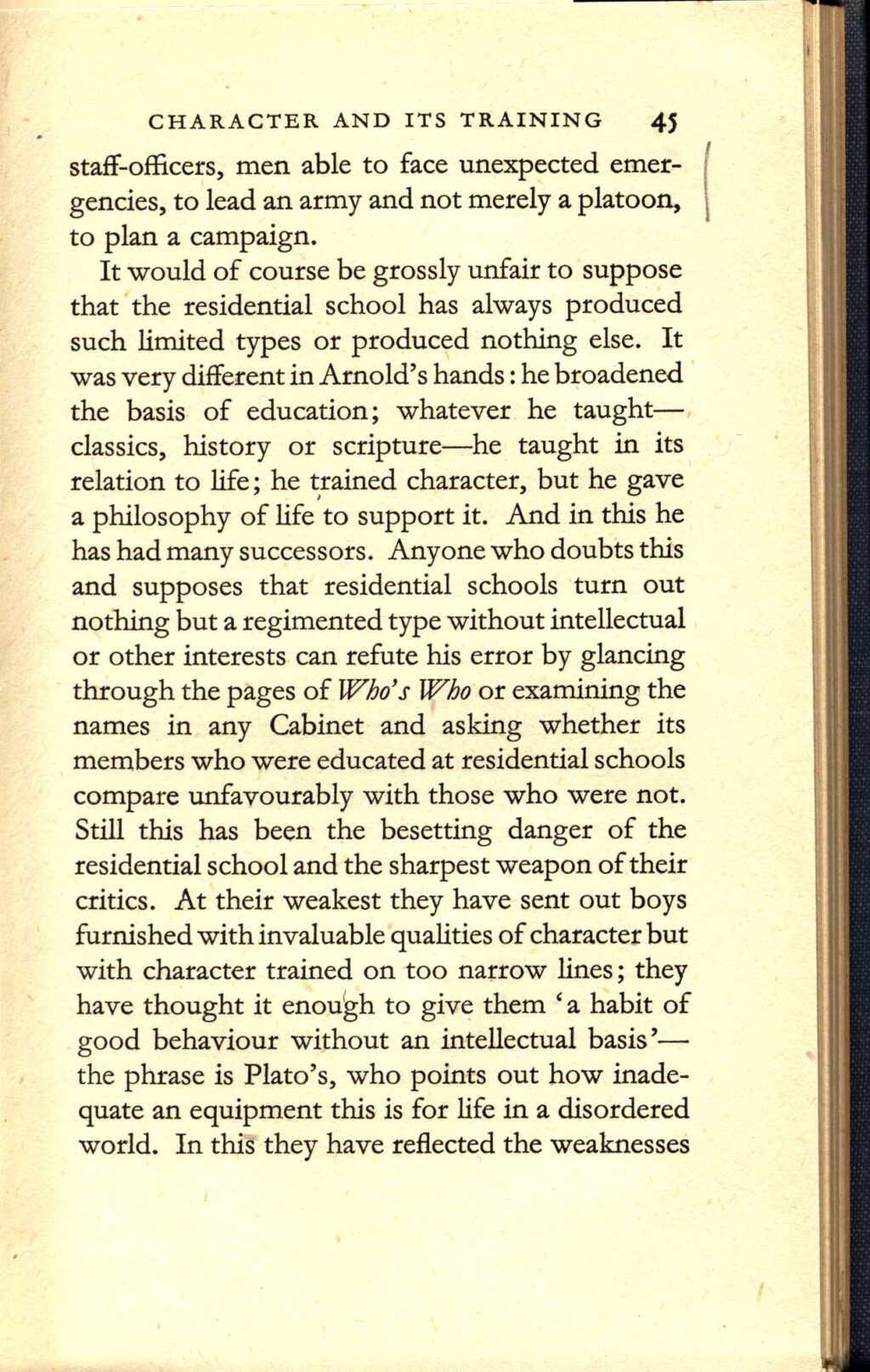| Entry type: Book | Call Number: 1221 | Barcode: 31290030401590 |
-
Author
Livingstone, Sir Richard (Richard Winn)
-
Publication Date
1943
-
Place of Publication
Cambridge
-
Book-plate
No
-
Edition
First
-
Number of Pages
158
-
Publication Info
hardcover
Copy specific notes
Bookplate inserted; “Robert Menzies” written in pencil on front endpaper. Throughout text various passages are highlighted, including: [p. 7] “The State comes into existence for the sake of life, it exists for the sake of life […] it is possible to achieve peace, material prosperity, and abolition of unemployment, and yet we have a civilisation of little value: as we are reminded by T. S. Elliot’s epitaph on our comfortable suburbs: [“]A Cry from the North, from the West and from the South: Whence thousands travel daily to the timekept City, Where My Word is unspoken. In the land of lobelias and tennis flannels The Rabbit shall burrow and the thorn revisit, The nettle shall flourish on the gravel court, and the wind shall say ‘Here were decent godless people: Their only monument the asphalt road and a thousand lost golf balls[“]]”; [p. 11] “That is what I mean by saying that this generation might be called ‘The Age without Standards’.”; [p. 28 – quoting Walter Lippman] “There is an enormous vacuum where until a few decades ago there was the substance of education. And with what is that vacuum filled: it is filled with the elective, eclectic, the specialised, the accidental and incidental improvisations and spontaneous curiosities [p. 29] of teachers and students.”; [p. 42 – also earmarked] “Indeed the history of mankind might be described by a cynic as a series of splendid expeditions towards the wrong goal or towards no goal at all, led by men who have all the gifts of leadership except a sense of direction, and every endowment for achieving their ends except the knowledge of ends worth achieving. We must not forget in our education this element, a sense of direction. We do forget in, if we are content that our schools should merely impact knowledge, develop and discipline the intelligence, train character in the narrow sense. They must also be places where the mind is enriched by the right visions and where the ends of life are learned. [p. 43] The English find it difficult to take these aspects of school seriously. There is a common assumption among them that a boy good at games will be good in practice life, and that a boy good at books will not. Neither of these beliefs is borne out by facts or shared by any other nations except those of English blood. But Englishmen nurture in the depth of their hearts a feeling that intellectual interests are enervating.”; [p. 44 – on prize-days] “the speaker points out that it is not always the successful schoolboy who succeeds in after life. He himself was no good at work and never much cared for it; but then, he reminds his audience, it is not learning Latin and Greek that one looks for at school, but training of character and learning to play the game. How well one knows this doctrine! In any case it is superfluous. To preach it to school-boys is carrying coals to Newcastle. Few of them need to be warned against over-valuing Latin and Greek, against a too arduous devotion to intellectual interests. But there is a graver objection to it. The doctrine is false. A character, trained in this limited sense, is admirable within its limits but inadequate to the needs of the modern world. It is deficient as a character. It may have, at its best undoubtedly has, powers of leadership. But it is the leadership of a corporal or a sergeant. Such an education produces a superb army of N.C.O.’s; whereas the real business of the school is to train [p. 45] staff-officers, men able to face unexpected emergencies, to lead an army and not merely a platoon, to plan a campaign.”; [p. 55] “[‘The intelligence of every soul rejoices at beholding Reality, and once more gazing on Truth is replenished and made glad.’ In the fable from which these words are quoted, Plato, describing how each human soul before birth drove across heaven in the company of the gods, and saw Beauty, Justice, Courage and the other virtues, says that success in life depends on how far, among the shadows, confusions and distractions of earth, the soul retains the memory of that vision. Plato’s story is a parable of a good education.”; [p. 56] “Our education then should not be satisfied with imparting the information which a pupil requires, equipping him for a vocation, teaching him how to use his mind. It should send him out with a definite spiritual attitude to life, and the material and basis for a definite philosophy of living. It should have the aim which it would probably profess to-day, which it would certainly not disclaim, which in general it pursues half-heartedly and ineffectually, and in the university stage, especially in the newer university, wholly abandons – the aim which education had 2300 years ago.”; [p. 137] “How can the spirit of citizenship be created or developed? How are good citizens made? This is part of the obscure and important question, where do men get their virtues? From what deep sources are drawn the courage and sacrifice shown in the air, by sea, on land? Where do the [p. 138] inhabitants of, for instance, Bermondsey or Bow, many of them living in intolerable surroundings, learn the qualities which enable them in peace to be decent, kindly people, and in war cheerfully to face the ruin of their homes and death from the air? How are such virtues to be preserved and extended? And, on the other hand, when come our weaknesses and how shall we cure them – commercialism that sells beauty and debases standards for money, profiteering in every class and rank, partisanship and reckless statements in politics and outside it, the intellectuals betrayal of truth? He are problems deserving inquiry more than many sociological studies, and very relevant to our future.”; [p. 140] Unless he has a retentive memory or lively imagination, the facts learnt will fall on his mind list dust, and, like dust, will in a few months or less be swept from it by succeeding impressions, leaving perhaps a few grains of knowledge behind. The clever pupil will retain more, but is likely to derive from his studies little beyond some up-to-date knowledge [p. 141] of facts, a vague plausibility about social questions, and a misleading belief that he understands them. For politics and government are essentially practical subjects, wearing very different faces in books and in life. Our views on them are of small value unless we have seen them at first-hand, and a schoolboy has not seen them at first-hand.”; [p. 142] “What lovers of paradox we British are! Youth studies but cannot act; the adult must act, and has no opportunity of study; and we accept [p.143] the divorce complacently.”; [p. 153 – on public schools] “It is an incomparable school of social education, of citizenship, where boys learn citizenship by being citizens. That is what a public school boy is – a citizen. He has two countries – his school, a community of perhaps 600 boys, and his house, a community of some 50 boys. He is a member, a citizen of both these communities, and in each of them has his place and privileges and duties. He lives inside them for eight months of the year. Their problems, their interests, their happenings are before his mind on every day of those eight months. Never in later life will he be so intensely a member of a community, never again will he live so completely in and for a community, as he does in these school years. Living thus as a citizen he imbibes instinctively the fundamental principles of good citizenship. To feel yourself part of a community which you have a share and a responsibility in making, whose successes are somehow your successes and whose failures cast their shadow on you, to be able to obey and to live and co-operate with other members of the community, this is the essence of citizenship, and this the boy at a good residential school learns unconsciously every day of his life, not by being taught it, but by practicing it.”; and [p. 154] “Plato thought that the State should educate children ‘before they can understand language and are therefore incapable of appreciating any sort of instruction’”.
Related entries
You might also like...
Sign up to our newsletter
Sign up for our monthly newsletter to hear the latest news and receive information about upcoming events.

